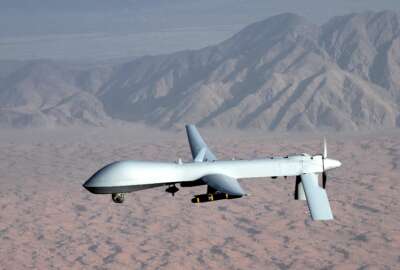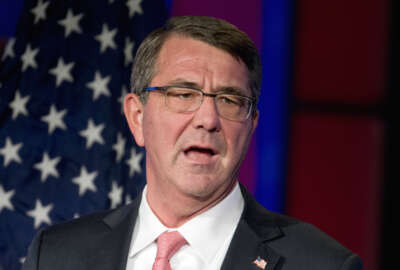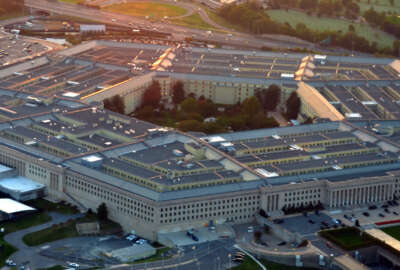
Air Force Sec. James says goodbye with new cyber service
As Air Force Secretary Deborah Lee James closes out her tenure, she is setting up a new Air Force Digital Service.
Air Force Secretary Deborah Lee James has one foot out the door, but before she walks into the sunset she is implementing a few new initiatives.
In her last public appearance James announced the Air Force is creating its own digital service that will focus on building software excellence into new programs.
They will also “troubleshoot existing programs that run into difficulties associated with software. Software is frequently at the root of many of our difficulties,” James said at an Air Force Association event in Arlington, Virginia.
The Air Force Digital Service will be part of the Defense Digital Service, a component of the Defense Department set up by Defense Secretary Ash Carter to bring top technology experts on board for short periods of time to solve big Defense IT problems.
Lt. Gen. Arnold Bunch, Military Deputy for Air Force Assistant Secretary for Acquisition’s Office said the Air Force is making a list of what programs the service will work on. There is currently no official timeline for when the list will be ready.
The broader Defense Digital Service is seriously involved in projects ranging from the Pentagon’s collection and reporting of data on sexual assault to the control systems that will manage the next generation of GPS to a cloud-based overhaul of the long-maligned Defense Travel System.
“It’s been an opening of the floodgates,” Chris Lynch, director of DDS, said last June. “Since then, we’ve had tons of people showing up at our office to talk to us about the various challenges they’ve had. Some of them are IT professionals who tell us they’ve been waiting literally their entire careers for an office like this.”
Personnel issues
While cyber was a big focus for James during her three year tenure, people and growth also topped the list.
Multiple times James said the people in the Air Force needed the most attention.
Next week the Air Force will update its dress and appearance policies and its standards for who is eligible to come into the service.
“We will be opening up the aperture on tattoos and certain medical conditions that will allow a wider pool of people to come into our Air Force in the future, but of course always, always, always taking into account and keeping extremely high, our standards in the Air Force,” James said.
The Air Force updates the policy every four or five years.
The service has been hinting at changes to appearance policy as a means to expand the Air Force talent pool, especially for airmen with cyber skills.
“If you think about warfare in the future and if you think about … this third offset strategy, which is this interface between man and machine. How much brawn does the military really need and how much intellect?” said Deputy Chief of Staff for Manpower, Personnel and Services Lt. Gen. Gina Grosso in October 2016. “Do I care what a cyber warrior weighs? Do I care that they run a mile and a half in 12 minutes, it gets to this idea: rather than think of the standard for the whole force do we think of individual standards? … [Tattoos] are in vogue so do I really care that somebody has a flower on their arm or on their back? These sleeve tattoos are very popular.”
As the Air Force widens its base of people to choose from, it’s also trying to make itself more appealing.
The service has a shortage of pilots and maintainers.
In August, the Air Force offered $35,000 retention bonuses to unmanned aircraft pilots to stay in the military, but the Air Force is trying to better their living situation too.
“We are putting the finishing touches on an initiation plan through our strategic basing process to expand the basing structure and that will help with some of the quality of life concerns that our [drone pilot] force reports to us. We do plan to announce the preferred location for a new [drone pilot] base within the next couple of weeks,” James said.
Copyright © 2025 Federal News Network. All rights reserved. This website is not intended for users located within the European Economic Area.
Scott Maucione is a defense reporter for Federal News Network and reports on human capital, workforce and the Defense Department at-large.
Follow @smaucioneWFED





